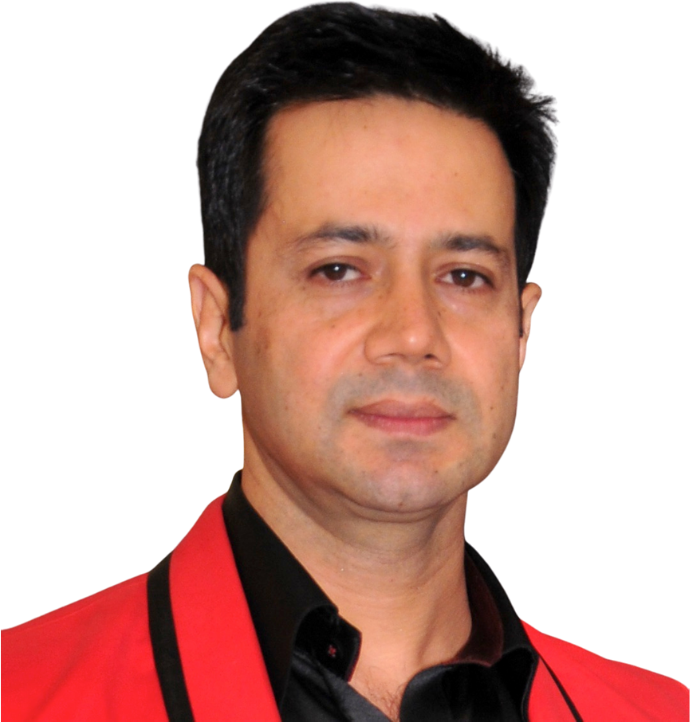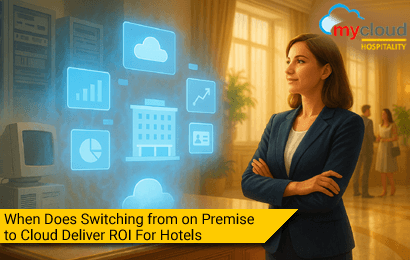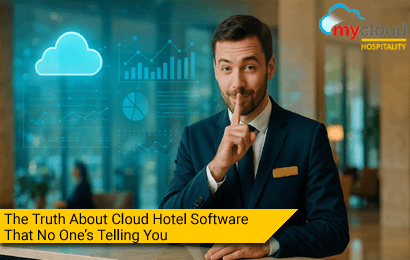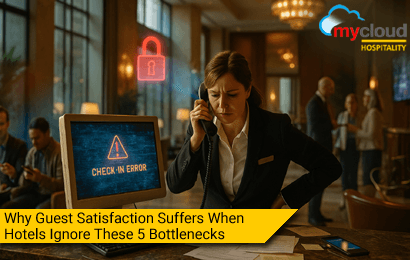In the fast-evolving world of hospitality, technology has emerged as the silent force behind exceptional guest experiences, streamlined operations, and smarter decision-making. From independent boutique hotels to luxury resorts, the demand for reliable and efficient software for the hospitality industry has never been more critical.
This article explores the essential software used in hotels, why these tools are crucial for daily operations, and how industry leaders like mycloud Hospitality PMS are setting new benchmarks in innovation and value.
Why Software Is a Game-Changer in the Hospitality Industry
Running a hotel today is more complex than ever. Guests expect personalization, fast service, and digital convenience. Meanwhile, hoteliers face rising operational costs, labor shortages, and increasing competition. In this landscape, software for the hospitality industry serves as a crucial enabler.
Here’s why modern hotels—big or small—are embracing technology:
- Faster check-in/out processes.
- Better room inventory management.
- Smarter pricing strategies driven by demand forecasting.
- Improved communication between departments.
- Deeper guest insights for personalization.
As a result, the adoption of robust hospitality software is no longer optional—it’s essential.
Types of Software Used in the Hotel Industry
Let’s break down the software used in hotels today, and how each one contributes to efficient, guest-focused operations.
1. Property Management System (PMS)
The heart of hotel operations, a PMS handles:
• Reservations and guest profiles
• Front desk operations
• Billing and invoicing
• Housekeeping coordination
Modern PMS platforms, like mycloud Hospitality, are cloud-based, scalable, and offer integrations with hundreds of third-party tools.
2. Channel Manager
Hotels often sell rooms through OTAs like Booking.com or Agoda. A channel manager syncs room availability and rates across platforms in real-time, reducing overbooking and manual errors.
3. Point-of-Sale (POS) System
Used in restaurants, bars, and spas, POS software processes transactions, manages orders, and links with PMS systems to charge bills directly to rooms.
4. Customer Relationship Management (CRM)
CRM software enables hotels to:
- Track guest preferences
- Send personalized offers
- Manage loyalty programs
- Automate email campaigns
5. Revenue Management Software (RMS)
This tool analyzes market trends, booking pace, and competition to recommend optimal pricing, ensuring hotels maximize their revenue.
6. Housekeeping and Maintenance Software
These tools assign tasks to staff, track cleaning status, and flag maintenance issues in real time—ensuring that rooms are guest-ready without delay.
Benefits of Hospitality Software
Investing in the right hospitality software brings significant operational and guest service advantages. Let’s explore how these systems directly benefit hotel businesses across departments.
1. Streamlined Operations Across Departments
Hospitality software eliminates the need for multiple disjointed systems by unifying key functions like front desk management, reservations, housekeeping, and billing.
How it helps:
- Automates routine tasks such as check-ins, payments, and reporting.
- Reduces reliance on spreadsheets and manual entry.
- Ensures that all teams (front office, housekeeping, F&B, accounting) work from a single source of truth.
Example:
When a guest checks out, the PMS automatically updates room status, notifies housekeeping, and posts charges to the ledger—without any manual handoff.
2. Faster and More Personalized Guest Service
Today’s guests expect speed and personalization—and software makes that possible.
How it helps:
- Quick check-in/check-out with digital registration.
- CRM modules track guest preferences and visit history.
- Staff can offer tailored experiences like preferred rooms, pillow types, or birthday greetings.
Example:
A returning guest who always stays in a corner suite gets it auto-assigned, and a welcome note includes their favorite drink—because the PMS remembered.
3. Higher Revenue with Smarter Pricing
Revenue Management Software and integrated pricing tools use data to help hoteliers set optimal rates.
How it helps:
- Tracks competitor pricing and market demand in real-time.
- Uses historical booking data to forecast trends.
- Adjusts room prices dynamically to maximize yield.
Example:
If there’s a spike in bookings during a local event, the RMS will automatically raise rates to match demand—resulting in more profit.
4. Improved Distribution and Fewer Overbookings
With a channel manager integrated into the PMS, room inventory is updated in real-time across all booking platforms—OTAs, direct website, and offline channels.
How it helps:
- Reduces risk of overbooking.
- Saves staff time spent on manual updates.
- Broadens visibility to new customer segments.
Example:
When a room is booked via Booking.com, it’s instantly marked unavailable on Agoda, Expedia, and the hotel’s own website.
5. Real-Time Reporting and Better Decision Making
Hospitality software provides dashboards, analytics, and reports on everything from occupancy to revenue per available room (RevPAR).
How it helps:
- Enables data-driven decision making.
- Tracks KPIs like booking pace, average stay duration, and revenue.
- Identifies patterns to improve marketing, staffing, and promotions.
Example:
Management can see that weekend occupancy is consistently low and decide to run a targeted campaign offering free breakfast for Friday and Saturday bookings.
6. Enhanced Staff Productivity and Coordination
Manual processes are prone to delays and errors. Hospitality software assigns and tracks tasks in real time.
How it helps:
- Housekeeping apps notify staff of room status and prioritize tasks.
- Maintenance requests can be submitted and tracked digitally.
- Communication between departments becomes more efficient.
Example:
If a guest reports a broken AC, the front desk logs it in the PMS, and the engineer gets a real-time alert with room details.
7. Seamless Guest Communication
Software like integrated messaging platforms or CRM tools help manage pre-arrival, in-stay, and post-stay communication.
How it helps:
- Automates confirmations, reminders, and surveys.
- Sends upsell offers (late checkout, spa packages).
- Collects feedback and resolves issues promptly.
Example:
After checkout, guests receive a thank-you email with a request to leave a Google review—boosting the hotel’s online reputation.
8. Cost Savings and Higher ROI
While software comes with licensing costs, the automation and efficiency gains far outweigh the investment.
How it helps:
- Reduces errors that lead to lost revenue (e.g., missed charges, duplicate bookings).
- Optimizes staff deployment, minimizing overtime and manual labor.
- Increases direct bookings, lowering OTA commission expenses.
Example:
A small hotel switches from spreadsheets to a cloud PMS and saves 15+ hours of admin work weekly, allowing one staff member to focus on guest engagement instead.
9. Security and Compliance
Modern hospitality software platforms include security protocols, audit trails, and GDPR-compliant data handling.
How it helps:
- Protects guest data and payment information.
- Limits system access based on staff roles.
- Maintains detailed logs for auditing.
Example:
Only the finance manager can access revenue reports, while front desk staff can process check-ins but not access sensitive guest data.
10. Scalability and Future-Proofing
As your property grows or evolves, scalable hotel management system like mycloud Hospitality allow you to upgrade features, add modules, or expand to multiple locations—without switching systems.
How it helps:
- Supports multiple properties or brands from one dashboard.
- Adds new modules like inventory control, restaurant POS, or RMS as needed.
- Keeps up with guest tech trends (mobile keys, voice-controlled rooms, etc.)
Example:
A hotel that starts with 20 rooms grows to 75 and adds spa and banquet modules over time—without needing a system overhaul.
Real-World Example: How Technology Transforms a Hotel
Imagine a 50-room boutique hotel struggling with slow check-ins, double bookings, and poor guest communication. After adopting a cloud-based PMS with a channel manager and mobile POS integration, the hotel sees:
- 60% reduction in check-in times
- 30% increase in direct bookings
- 95% guest satisfaction in post-stay surveys
This is the power of leveraging the right software for the hospitality industry.
Why Mycloud Hospitality Is Hoteliers’ First Choice in 2025
Among the many players in the market, mycloud Hospitality stands out as a trusted and award-winning hospitality technology partner. But what makes it the go-to solution for thousands of hotels worldwide?
1. Covers Every Operational Need
From reservations and front desk to housekeeping and POS, mycloud PMS supports all the essential functions mentioned above—in one unified, cloud-based platform.
It’s a true all-in-one system that adapts to different hotel types: budget hotels, resorts, serviced apartments, and even luxury chains.
2. 200+ Interface Library
One of the biggest advantages of mycloud is its 200+ third-party integrations. This means you can easily connect your PMS to popular OTAs, payment gateways, door lock systems, accounting software, and more.
Whether you’re using Mailchimp for email marketing or Xero for accounting, mycloud fits into your existing tech ecosystem seamlessly.
3. Award-Winning Credibility
mycloud PMS is a 3-time winner of the HotelTechReport Certificate of Excellence, receiving the badge in 2021, 2022, and 2023. This award reflects consistently high ratings and real user satisfaction.
On HotelTechReport, 34% of reviewers (27 out of 80) come from luxury hotels—a strong testament to its reliability and feature set in high-demand environments.
4. Transparent, Affordable Pricing
One of the reasons mycloud is so widely adopted—especially by independent hotels—is its cost-effective pricing. The basic plan includes:
- Property Management System
- Rate management
- Front office and reservation modules
- Cloud hosting and backups
- 24/7 customer support
All of this starts at a price point that makes enterprise-grade tools accessible to even small, independent properties. You can check out the full plan details here.
5. Built-In Scalability
As your property grows, so does mycloud. It’s designed to be scalable, so you can upgrade plans, add modules (like revenue management system) or scale to multiple properties—all without migrating systems.
How to Choosing the Right Hotel Software: A Quick Checklist
Not all hotel software is created equal. Here’s what to consider before choosing your tech stack:
- Cloud-based and mobile accessible
- Scalable to meet future needs
- Easy integration with other tools
- User-friendly for front-line staff
- Backed by responsive customer support
- Proven user ratings and reviews
mycloud Hospitality ticks every box—backed by real-world results and user trust.
What’s Next: Trends Shaping the Future of Hotel Tech
Looking ahead, here are some tech trends transforming how hotels operate and serve guests:
- AI-Powered Personalization: From chatbot concierges to customized room settings.
- Voice and Gesture-Controlled Rooms: Enhancing accessibility and luxury.
- Sustainability Tools: Energy tracking and eco-friendly resource planning.
- IoT-Integrated Housekeeping: Smart sensors indicating room readiness.
mycloud continues to innovate in these areas, ensuring hotels stay ahead of guest expectations.
Conclusion
The modern hotel industry thrives on speed, personalization, and efficiency—all of which are powered by the right software for the hospitality industry. Whether you’re just getting started or upgrading legacy systems, choosing the right platform can dramatically impact your bottom line and guest experience.
With its extensive features, award-winning track record, 200+ integrations, and affordable pricing, mycloud Hospitality PMS is a future-proof solution and a trusted partner for hoteliers worldwide.
Ready to elevate your hotel operations?
Explore how mycloud can help—Book a free demo and take your first step toward seamless hospitality management.










